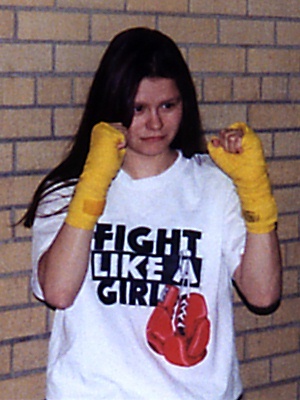All Nonfiction
- Bullying
- Books
- Academic
- Author Interviews
- Celebrity interviews
- College Articles
- College Essays
- Educator of the Year
- Heroes
- Interviews
- Memoir
- Personal Experience
- Sports
- Travel & Culture
All Opinions
- Bullying
- Current Events / Politics
- Discrimination
- Drugs / Alcohol / Smoking
- Entertainment / Celebrities
- Environment
- Love / Relationships
- Movies / Music / TV
- Pop Culture / Trends
- School / College
- Social Issues / Civics
- Spirituality / Religion
- Sports / Hobbies
All Hot Topics
- Bullying
- Community Service
- Environment
- Health
- Letters to the Editor
- Pride & Prejudice
- What Matters
- Back
Summer Guide
- Program Links
- Program Reviews
- Back
College Guide
- College Links
- College Reviews
- College Essays
- College Articles
- Back
Breaking Barriers
This might be a compelling story all in itself. A little Mexican American girl learns the importance of education. She spent her time inside the two-bedroom apartment on the couch reading Rainbow Fish to The Immortal Rules while the other kids pulled out their Star Wars lightsabers. If she’d forget about education and continued living as a poor Mexican, she would’ve been considered a good future housewife. But she is living in a two-bedroom apartment with six other people and considered an outcast who couldn’t be as successful and assertive as any male no matter how much she yearned for the end of her poverty and the start of a good education. Asking questions and being curious made others think she was foolish as if she should’ve known everything. This filled her with doubt and insecurity for which now she alludes to herself in third-person.
A smart Hispanic woman was considered a daydreamer, generally shamed, dismissed and reminded she belonged nowhere else but at home doing chores and cooking to find a future husband after completing high school. I participated in my classes every day, breaking the Hispanic women stereotype. Hispanic girls feared to have a voice. They, the girls who feared to have a voice, wanted me to remember my place in our society when my teachers wanted to get to know each one of us or when they expected us to participate to show we can do it too. We were expected to be quiet, get pregnant, or dropout. Most Hispanic women lived up to fulfilling those standards. They did plan on dropping out because it was too difficult for them to keep up with but never planned on not satisfying those typical Hispanic women stereotypes. They found themselves pregnant and fell into drugs but never put the same yearning for something priceless, their education. They claimed to be independent even though they knew their parents and society were setting them up to be dependent, fulfilling those stereotypes. As Hispanic girls, we were expected to be unintelligent and fail. Those who failed their education were welcomed to a low minimum wage job, a two-bedroom apartment with 6 people, and a family who believed you couldn’t be more. Was there a way out?
I refused to be led to a path of stereotypes, specifically made for housewives. I was resilient. I was stubborn. I was smart enough to pass. I stayed up late at night finishing homework. I stayed after school to get help from teachers. I staye9d after school to get involved in clubs like Temas Latinos, Robotics club, and tutoring. I spent days and nights studying for tests and finished homework after working 6-hour shifts at Subway and cleaning offices with my mother after school every day except for Wednesday. I asked my teachers “How can I improve on my grade for this class?”. I asked my teachers “How does this lesson relate to life or benefit mine?”. I constantly threw questions to all my teachers to get further into the depth about the topics I learned in their classes. I took my time to reflect on what might have happened if my mother went to college and my father didn’t drop out the third grade, thinking of all the food that could’ve filled my fridge and stomach while I starved. I dreamed of having an actual bed set, but we lived to check by check. I let my curiosity run wild whether it was into the topics I learned at school, life, or reading SlaughterHouse 5 as a freshman. I told my parents I was going to college whether they liked it or not. I was trying to break the Hispanic women stereotype.

Similar Articles
JOIN THE DISCUSSION
This article has 0 comments.

Inspired by Superman & Me by Sherman Alexie